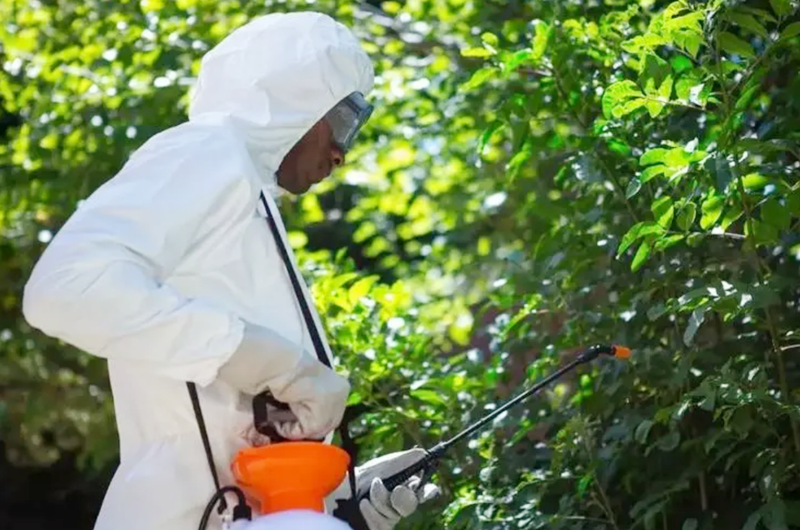Why Plant Extract Can Be Used As Pesticides and Insecticides?
Are you looking for a way to naturally control pests that can damage your plants and reduce quality crop yields? If so, using plants as pesticides and insecticides may be just the method you need. Biologically-derived pesticides and insecticides of plant origin offer many benefits over synthetics. This age-old practice is an increasingly popular choice among gardeners and farmers alike who wish to keep their crops healthy without relying on commercially manufactured chemical solutions. These plant-based pest control methods are highly effective, cost-efficient, integrate easily with organic farming techniques, and promote sustainable practices with minimal ecological impact. They are safe for farmers and the environment and reduce reliance on synthetics. Using plants as pesticides and insecticides offer numerous benefits that make it an increasingly popular option.
Sustainable
Plants are renewable resources and thus more sustainable than synthetic chemicals. They possess a natural ability to repel or poison certain pests that can harm them. These pest-resistant plants are crucial to maintain the health and well-being of the surrounding ecosystem. Some plants contain toxic substances that can deter herbivores from consuming them, while others produce strong scents that keep away insects. Examples of such pest-resistant plants include the marigold flower, which repels nematodes, and the chrysanthemum, which produces a natural insecticide known as pyrethrum. Utilizing these natural defenses can serve as a sustainable and chemical-free way to protect plants and crops from destructive pests.
Selectivity
Plant extracts and essential oil-based pesticide products are a great alternative to traditional chemical insecticides. They provide a safer and more environmentally friendly solution to control a range of pests such as lepidopterous insects, mosquitoes, mites and soft-bodied insects. When used as pesticides and insecticides, plant extracts and essential oils have the potential to suppress a wide range of pests by affecting their life cycle. This can include reducing their numbers in the environment, killing them when they are in contact with the plants or causing them to die off. Several studies have focused on the insecticidal activity of plant extracts against a variety of pests. For example, a Acacia corniculatum bark extract, Eucalyptus extract and Hemidesmus fomes extract were found to be highly active against stored product pests of tomato (S. oryzae) and pepper (S. zeamais) resulting in over 42% mortality at 5 days and 82-100% mortality after 15 days of treatment. In addition, it is important to know the selectivity of the plant extract or essential oil-based pesticide product. This information will allow researchers to design effective and eco-friendly biopesticides that can be used for a wide range of pests.
No harm to non-target organisms
Plant extracts and essential oil-based pesticide products are gaining popularity among consumers because of their bioactivity, efficacy, and cost-effectiveness. Many plant species are capable of producing bioactive compounds, which exhibit diverse toxic, repellent and antifeedant properties. These natural substances are commonly referred to as secondary metabolites. They have been exploited to treat various crop diseases and insect pests. Least-toxic insecticides are derived from plants or bacteria, such as pyrethrin and neem extract. They are less toxic to birds, mammals and bees than conventional pesticides. Essential oils also work well as insecticides and can be used on many types of bugs, including fleas, flies, ants, and cockroaches. This will also help to ensure the safety of pollinators, such as honeybees, as well as other wildlife. Short-term persistence When compared to synthetic pesticides, plant extract and essential oil-based pesticide products have short-term persistence (24 hrs). This is an important feature of these compounds. Studies show that plant extracts and essential oil-based pesticide products degrade quickly after application under field conditions. This is due to microbial degradation, which occurs in the presence of sunlight, oxygen and water. This process is facilitated by the availability of enzymes to hydrolyze ester bonds. It allows rapid breakdown of active ingredients and minimal effects on non-target organisms, thereby limiting their potential for development of resistance.
Environmentally friendly
Plant extracts and essential oils are a natural and environmentally friendly alternative to chemical pesticides. Many people are concerned about the environmental impact of synthetic pesticides, including their toxic effects on humans, water and fish. There is also concern that the pesticides used in agriculture drift off from their spraying areas, killing beneficial organisms and polluting the environment. In addition, pesticides can cause serious health problems, such as cancer and organ damage. Fortunately, scientists are working to develop new and environmentally friendly alternatives to synthetic pesticides.
Write in the last, Biopesticides are gaining popularity in the world of agriculture because they offer many benefits over synthetic insecticides. They have a lower impact on the environment and are safer to use around humans and animals. plant-based pesticides are effective yet gentle, making them suitable for organic farming and gardening. They also have a shorter residual life, meaning that they break down faster and leave minimal residues on crops. using plants as pesticides and insecticides often costs less than synthetic options. As research and development in plant-based pest solutions continue, we can expect to see more benefits being uncovered.



